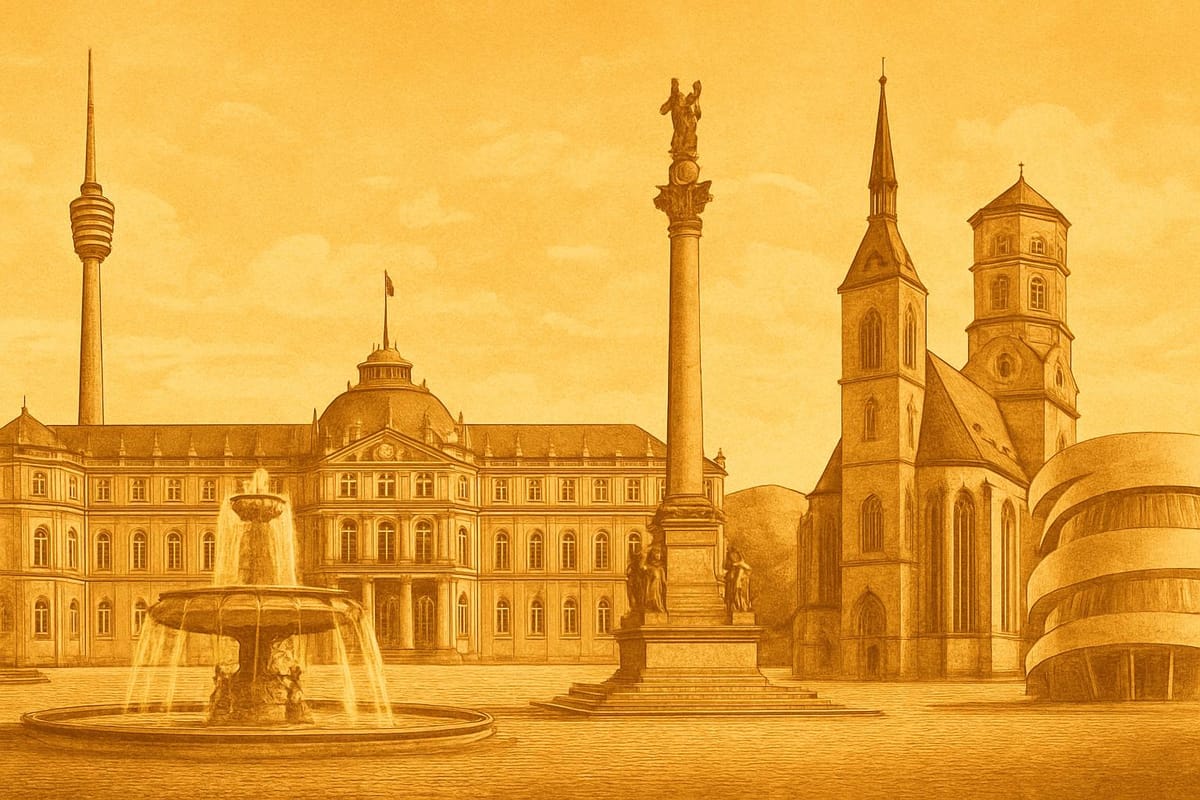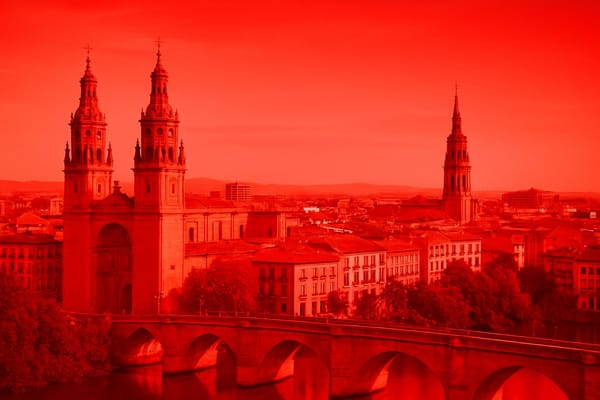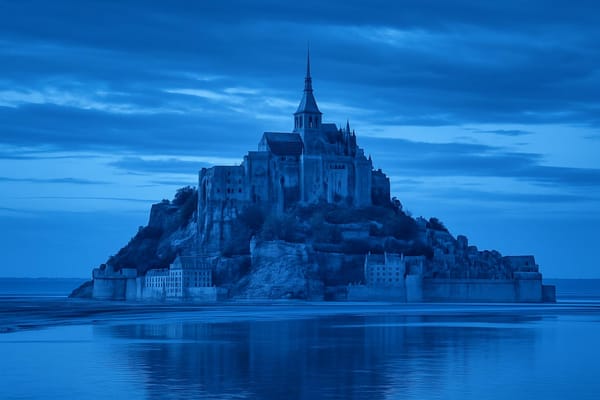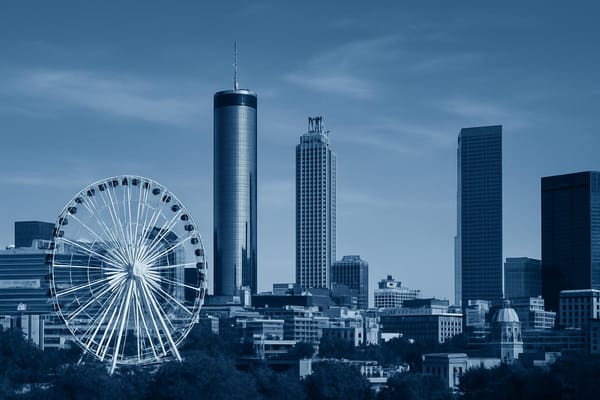Stuttgart
Explore Mercedes-Benz & Porsche museums, Schlossplatz, vineyards, parks and vibrant gastronomy.

Important things to know about Stuttgart
Stuttgart, Germany, is a dynamic urban center in the southwestern state of Baden-Württemberg, where a unique blend of industrial strength, academic excellence and everyday livability shapes the character of the city; home to a population that values efficient public transport, green urban planning and a strong local economy, Stuttgart balances the pulse of modern business with neighbourhoods that feel distinctly human-scale and varied, from dense residential districts to quieter outskirts marked by vineyards and rolling hills. The city’s reputation as a hub for the automotive and engineering sectors drives innovation and international ties, while a dense network of research institutes and the University of Stuttgart contribute to talent development and a high level of expertise in fields like mechanical engineering, information technology and environmental sciences. Infrastructure investment is visible in the integrated light rail and regional rail links that connect commuters and students across the metropolitan region, and the local economy benefits from a mix of global corporations, SMEs and start-ups that collaborate across supply chains and research projects. Daily life in Stuttgart reflects a multicultural, multilingual population with a lively food scene grounded in regional produce, thriving markets and modern restaurants, alongside community festivals and neighbourhood initiatives that promote sustainability and social cohesion. Weather patterns bring warm summers and brisk winters, shaping outdoor habits and seasonal events, and urban planning continues to emphasize green space, cycling routes and energy-efficient housing. All told, Stuttgart presents itself as a forward-looking city in Germany where tradition and technological progress intersect to create a resilient, prosperous and culturally diverse metropolitan area.
Sightseeing hot-spots in Stuttgart
Stuttgart, Germany, is a compact city full of sightseeing treasures that make it an essential stop for travelers exploring Baden-Württemberg. At the heart of the city, Schlossplatz offers wide open squares, summer fountains and a perfect starting point to wander to the New Palace and nearby museums. Stroll along Königstraße, one of Germany’s liveliest shopping streets, and pop into the Staatsgalerie to admire modern and classical art. For anyone compiling a list of things to do in Stuttgart, the blend of historic architecture and contemporary cultural venues ensures there's something for every tourist.
Automotive history is woven into Stuttgart’s identity, and no visit is complete without experiencing its legendary museums. The Mercedes‑Benz Museum showcases the evolution of the automobile with immersive exhibits and classic cars, while the Porsche Museum thrills enthusiasts with sleek design and racing heritage. These attractions are major draws for international visitors seeking unique tourist attractions in Germany and are often highlighted in travel itineraries and SEO-focused guides for car lovers and design-minded travelers alike.
Beyond museums and shopping, Stuttgart surprises with green spaces and panoramic views that reward slower exploration. The Wilhelma Zoo doubles as a botanical garden, offering lush conservatories and rare species, and the surrounding vineyards on the city’s hillsides invite scenic walks and tastings. For a sweeping view of the cityscape, the Stuttgart TV Tower provides panoramic photo opportunities, while the Staatstheater presents world-class opera and ballet for evening entertainment. Whether you’re planning day trips from Stuttgart or searching for memorable sightseeing highlights in Germany, the city’s mix of culture, history and leisure makes it a compelling destination.
Hotels to enjoy in Stuttgart
Stuttgart offers a rich selection of hotels in Stuttgart that cater to every taste and budget, from elegant luxury properties with rooftop terraces to charming boutique stays tucked into historic streets. Many Stuttgart hotels are clustered around the lively city center, giving easy access to shopping on Königstraße and cultural highlights like Schlossplatz. Car enthusiasts and museum-goers will appreciate accommodations near the Mercedes-Benz Museum and the Porsche Museum, while travelers seeking relaxation can opt for hotels with on-site spa facilities and panoramic views over the Neckar valley. Whether you prioritize modern design, family-friendly rooms, or economical lodging, the diversity of Stuttgart accommodation means you can find a perfect base for exploring the city and nearby vineyards.
For business travelers and conference organizers, Stuttgart hotels provide a wide range of conference facilities, meeting rooms and group services close to major exhibition centers and corporate headquarters. Excellent public transport connections make transfers from Stuttgart Airport and the Hauptbahnhof straightforward, so choosing the right Stuttgart hotel can save valuable time during short trips. Many properties also offer flexible booking, breakfast options and concierge support tailored to both tourists and professionals, making it easier to plan museum visits, fine dining evenings or day trips into the surrounding Baden-Württemberg countryside. With careful comparison of location, amenities and reviews, you can secure accommodation that enhances your stay and ensures the most enjoyable experience among the best hotels in Stuttgart.
Restaurants to try in Stuttgart
Stuttgart’s restaurant scene blends Swabian tradition with contemporary European creativity, making restaurants in Stuttgart a compelling destination for food lovers. From cozy taverns serving handmade Spätzle and Maultaschen to elegant venues offering tasting menus, the city delivers a wide range of tastes and atmospheres. Visitors seeking authentic German cuisine will find family-run establishments that emphasize seasonal ingredients and regional recipes, while adventurous diners can explore international kitchens and modern bistros that reinterpret classic flavors. Those who care about quality and recognition will notice Michelin-starred and award-winning chefs who have helped put Stuttgart dining on the map, alongside casual eateries where local wines and hearty portions define the experience.
Exploring the best restaurants Stuttgart has to offer means sampling local specialties in neighborhoods from the vibrant city center to the quieter corners near the vineyards that surround the city. Foodies searching for the best restaurants in Stuttgart often prioritize a balance of atmosphere, service, and authentic taste-whether that means sharing platters at a rustic pub, savoring a refined multi-course meal, or pairing dishes with distinctive Württemberg wines. With a strong focus on fresh produce, craft techniques, and regional identity, Stuttgart restaurants cater to visitors and residents alike, promising memorable meals that reflect both tradition and innovation in Germany’s dynamic culinary landscape.
Best shopping stops in Stuttgart
Stuttgart is a vibrant destination for shopping in Stuttgart, where the long pedestrian boulevard Königstraße anchors a lively mix of high-street brands, department stores and independent boutiques. From the sleek multi-level feel of Milaneo to the historic elegance of Breuninger, the city offers a range of experiences that appeal to fashion lovers and bargain hunters alike. Trend-conscious shoppers will appreciate the concentration of designer boutiques, concept stores and pop-up shops in the city center, while those seeking a curated local feel can explore side streets for artisanal goods and unique finds. The blend of modern shopping centers and quaint streets means you can move seamlessly from luxury fashion to contemporary homeware, making Stuttgart shopping highlights ideal for varied tastes and budgets.
Beyond the main retail arteries, Stuttgart’s food halls, markets and local artisans contribute to an immersive retail culture that elevates the overall experience. The buzzing Markthalle and seasonal markets showcase regional specialties, organic produce and handcrafted items, perfect for travelers looking to combine culinary discovery with souvenir shopping. Outlet centers and designer sales events in and around the region provide opportunities for value-conscious buyers, while neighborhood shops in districts like Stuttgart-West and the Bohnenviertel reveal independent designers and vintage treasures. Whether you’re planning a focused shopping day or a leisurely retail-and-cafe crawl, the diversity of offerings across fashion, food and crafts makes shopping in Stuttgart a memorable urban pastime that blends German tradition with contemporary style.
Nightlife highlights in Stuttgart
Stuttgart nightlife pulses with a mix of elegant wine culture and energetic club scenes, making the city a top destination for evening entertainment. From the illuminated terraces around Schlossplatz to the buzzing clubs along Theodor-Heuss-Straße, visitors can find everything from relaxed wine bars pouring regional Riesling to late-night dance floors with local DJs. The historic Bohnenviertel offers intimate cocktail bars and craft-beer spots, while seasonal events like the Stuttgarter Weindorf bring a festive atmosphere where locals and tourists mingle over glasses of Württemberg wine. Culinary night owls will appreciate late-night restaurants serving Swabian specialties, ensuring the city’s food scene complements its after-dark offerings and enhances any search for the best Stuttgart nightlife experiences.
Cultural nights are equally compelling, with world-class performances at the opera and cutting-edge shows at independent theatres and live-music venues that host jazz, indie, and electronic acts. For those seeking a more laid-back evening, cozy cellar bars and trendy rooftop lounges provide panoramic views and signature cocktails, while pop-up events and club nights keep the calendar fresh year-round. Whether you’re planning a weekend getaway or updating your travel guide, the diverse Stuttgart nightlife-from sophisticated wine-tasting evenings to high-energy clubbing-delivers memorable nights that cater to every taste.
Getting around in Stuttgart
Stuttgart's transport scene offers seamless connections between Stuttgart Airport (Flughafen Stuttgart) and the city thanks to an integrated rail and road network: an underground airport train station served by the S-Bahn (lines S2 and S3) links travelers directly to Stuttgart Hauptbahnhof, while frequent regional trains and high-speed ICE services from the Hauptbahnhof provide fast links across Germany and to neighboring countries; passengers can also rely on a dense public transport network (VVS) of buses, taxis and airport shuttles for last-mile access, along with rental cars and well-signposted parking for drivers. The airport’s proximity to the city and clear signage makes transfers straightforward for business and leisure travelers, and ticket machines plus mobile apps simplify fare purchase and route planning. Ongoing station modernization at the main hub further improves capacity and passenger experience, making train travel increasingly attractive compared with driving. Whether arriving on a domestic flight, catching a long-distance ICE, or connecting to regional lines, Stuttgart’s combined airport and train infrastructure provides reliable, frequent options to reach the city center, suburban destinations and major European corridors with ease.
Culture must-see's in Stuttgart
Stuttgart’s cultural highlights form a rich tapestry where art, architecture, music, and festival life converge. At the heart of the city, Schlossplatz pulses with events and public life, while world-class museums like the Staatsgalerie and Kunstmuseum Stuttgart showcase classical and contemporary masterpieces that attract international visitors. Architectural enthusiasts come for the modernist legacy of the Weissenhofsiedlung, and car lovers find cultural stories in motion at the Porsche Museum and Mercedes‑Benz Museum, where design and engineering meet narrative exhibits. The city’s galleries, independent art spaces, and street art scenes further enrich Stuttgart’s cultural calendar, making it a hub for creatives and tourists seeking diverse cultural experiences.
Beyond static collections, Stuttgart is a living stage for performing arts and local tradition: the Stuttgart Ballet has a global reputation for innovative choreography, and venues such as the Liederhalle present symphonies, opera, and contemporary music. Seasonal festivals like the Cannstatter Volksfest celebrate Swabian roots with food, music, and conviviality, while wine taverns on the city’s surrounding slopes invite visitors to taste regional specialties and meet local traditions. Whether exploring museums, attending concerts, or enjoying open-air events, the culture highlights of Stuttgart offer a varied, accessible experience that appeals to art lovers, music fans, and cultural travelers seeking authentic German urban life.
History of Stuttgart
Stuttgart's long and layered history begins in the early Middle Ages, when the area was settled as a stud farm-the name itself deriving from the Old High German "Stuotgarten." From these agricultural roots the settlement grew into the political and economic center of the County, and later the Duchy, of Württemberg, shaping much of southwest Germany's trajectory. Over centuries the city expanded around its river valleys and vineyards, developing a distinct urban character characterized by baroque palaces, timber-frame houses, and a network of avenues that reflected its role as a ducal residence. The emergence of industry in the 19th century transformed Stuttgart into a focal point of the industrial revolution on the German peninsula: textile mills gave way to engineering workshops, and the city soon became synonymous with mechanical innovation. This period set the stage for the 20th-century rise of the automotive giants Mercedes-Benz and Porsche, whose factories, museums, and racing heritage cemented Stuttgart’s identity as a global center of automobile design and manufacturing.
The 20th century brought both triumph and tragedy to the history of Stuttgart. Rapid industrialization made the city a strategic target during World War II, resulting in extensive bombing that devastated large parts of the historic core. The post-war years were defined by determined reconstruction, modernist rebuilding, and a revival of civic life that balanced preservation of landmarks like the Schlossplatz and Neues Schloss with contemporary architecture, research institutions, and green urban planning. Cultural institutions such as the State Gallery, Stuttgart Ballet, and the opera house fostered a vibrant arts scene that paralleled the city's technological and economic reinvention. Today, Stuttgart blends its rich past and forward-looking industries: its universities and research centers drive advances in engineering and environmental technology, while its vineyards and parks recall a long agrarian tradition. The continuing narrative of the history of Stuttgart is one of adaptation-where medieval origins, ducal prestige, industrial prowess, wartime recovery, and cultural dynamism converge to make the city a pivotal hub in southern Germany’s economy and heritage.



